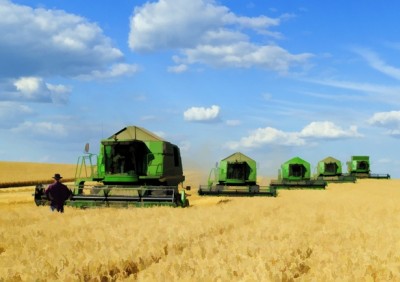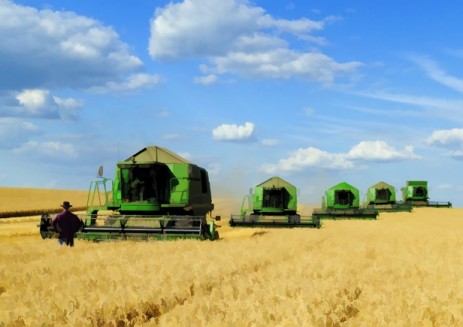 Can we all just get along? Image: Tom Twigg for GristIn a recent article, the LA Times foodie pundit Russ Parsons attempted to start a “more constructive give-and-take, the start of a true conversation” on the food system. He argues the debate has congealed into a tedious battle between “hard-line aggies” who are “convinced that a bunch of know-nothing urbanites want to send them back to Stone Age farming techniques,” and reformers who “lump together all farms (or at least those that aren’t purely organic, hemp-clad mom-and-pop operations) as thoughtless ravagers of the environment.”
Can we all just get along? Image: Tom Twigg for GristIn a recent article, the LA Times foodie pundit Russ Parsons attempted to start a “more constructive give-and-take, the start of a true conversation” on the food system. He argues the debate has congealed into a tedious battle between “hard-line aggies” who are “convinced that a bunch of know-nothing urbanites want to send them back to Stone Age farming techniques,” and reformers who “lump together all farms (or at least those that aren’t purely organic, hemp-clad mom-and-pop operations) as thoughtless ravagers of the environment.”
For all I know, Parsons places me in the latter camp; but I think he makes good sense here, and the kind of conversation he’s attempting to start would be quite valuable. I am sympathetic with anyone who’s trying to scratch a living off of the land, and recoil when sustainable food advocates demonize large-scale farmers. In the past I’ve argued–to the chagrin of mainstream green groups–against taking a simplistic anti-subsidy stance on farm policy.
And indeed, Parsons may have succeeded in starting just the kind cilvil conversation he set out to. The blog of the National Corn Grower’s Association, a group not normally open to criticisms of Big Ag, welcomed Parson’s piece: “You may not like all of the points made in his article, but there are some real gems that make it a worthy read.”
I welcome a new, more civil conversation, too. But here’s something that Parsons didn’t mention–and that must be aired out: corporate dominance of the food system. From my view, the main problem faced by the nation’s large-scale farmers isn’t that Michael Pollan writes books critical of corn; it’s that just two buyers, ADM and Cargill, buy and process the great bulk of their product–and siphon off so much of its value. And a few input suppliers like seed giant Monsanto and fertilizer titan Mosaic (majority-owned by Cargill) siphon off much of what’s left.
As long as that situation holds sway–large farms producing input-intensive monocrops for a few buyers with massive market power–the stewards of our nation’s best farmland will remain reliant on direct government payments and rigged up markets, like the one for ethanol. And they’ll face pressure to maximize gross output, to the detriment of soil, waterways, and flavor. We as a society have a stake in helping them get out of that trap–and I hope to participate in a civil conversation about how that can happen.


